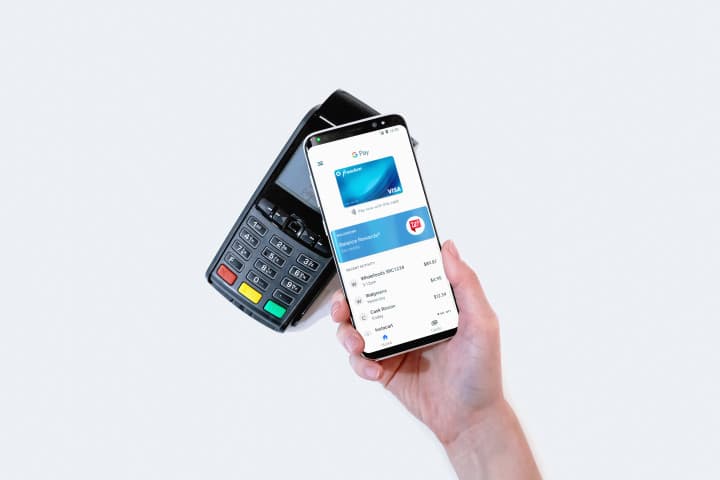In today’s technologically oriented society, we are presented with varying options when it comes to our finances, particularly around how we receive our earnings. Two prevalent methods are direct deposit and check cashing. But what is the difference between direct deposit vs check cashing? Through this exploration, we will unveil the fundamental aspects of both options, ensuring you are informed about what is entailed, how they work, and their common utilization.
We delve into the benefits and downsides of direct deposit, and similarly, provide a comprehensive understanding of the advantages and detriments of check cashing. Further, we will undertake a comparative analysis of both methods, presenting scenarios that can help determine which option might better suit your needs.
Overview of Direct Deposit and Check Cashing
Overview: Understanding Direct Deposit and Check Cashing
Direct deposit and check cashing are two common methods of receiving payment for employment and other forms of income. Each option has unique features, benefits, and potential drawbacks, depending on your specific financial needs and circumstances.
Direct deposit is an electronic payment method that transfers funds directly into your bank account. This method is often used by employers to pay wages, but it’s also used for social security benefits, tax refunds, and other forms of income. With direct deposit, the payer deposits the funds directly into your bank account usually through an automated clearing house (ACH) transaction. This process eliminates the need for a physical check and provides immediate access to funds.
Direct deposit is praised for its convenience and reliability. Since payments are made electronically, they arrive promptly on assigned paydays. Moreover, direct deposit eliminates the risk of lost or stolen checks and offers a more streamlined record-keeping process. This method is also eco-friendly as it reduces paper use.
On the flip side, check cashing involves receiving your income as a physical check. You then need to manually deposit this check into your bank account or cash it at a check-cashing service. This method allows you to have a paper trail of your income, which can be helpful for record-keeping purposes. Unlike direct deposits, physical checks can be cashed at various services if immediate funds are needed and one does not have a bank account.
However, using checks as a method of payment can present challenges. For one, a lost or stolen check can be difficult to replace. Secondly, check-cashing services often charge fees to cash checks, which can eat into your earnings over time. Furthermore, it may take several days for a deposited check to clear and the funds to be available in your bank account.
It’s common for individuals to choose direct deposit for its convenience and immediate access to funds. Yet, others prefer checks for their tangibility and flexibility. Understanding what these methods entail and how they work is crucial in making an informed decision that best suits your financial needs.
Getting Informed: Direct Deposit vs. Check Cashing
When it comes to money management, direct deposit and check cashing are two common methods worth considering. Direct deposit often offers a swifter, more secure approach. It’s a practical option if you regularly bank and find ease in handling electronic transactions or if you’re fond of convenience and speed.
On the other hand, check cashing might appeal more to those who appreciate flexibility. This harder-cash mode can be more fitting if you lack a bank account or favor physically managing checks for your records. Nonetheless, one should consider the fees associated with check-cashing services and the time taken to convert a check into usable cash.
Ultimately, the choice between direct deposit vs check cashing is a very personal decision. The growing trend points towards direct deposit due to its gains in simplicity and security. However, traditional check cashing still has its strong points, particularly for those who seek more palpable transaction methods.

Advantages and Disadvantages of Direct Deposit
Digging Deeper into Direct Deposit
Let’s examine direct deposit. This is an electronic payment form that deposits your money directly into your checking or savings account. Direct deposit is a prevalent payment method for employees, contractors, and benefit recipients, among others.
When a direct deposit is scheduled, your bank gets a notification. Subsequently, the funds should be accessible for you to use from the commencement of the payment date. All direct deposits are transferred between the bank direct deposit times which can vary.
Advantages of Direct Deposit
There are several advantages of direct deposit, the first being convenience. With direct deposit, there’s no need to visit a bank or check cashing store to deposit your funds. You can also split your paycheck between different accounts, allowing you to easily manage your finances.
Direct deposit offers enhanced security compared to cheques. The chance of having your paper check stolen or lost is eliminated as funds are automatically deposited into your bank account. For employers, the digital nature of direct deposits and payroll check cashing can simplify record keeping and avoid the cost of printing and mailing physical checks.
Direct deposit equips you with faster access to your money. Your paycheck gets to your bank account immediately on your payday, unlike checks which might take days to be processed and cleared.
Disadvantages of Direct Deposit
But direct deposit isn’t without its downsides. First begins with potential bank errors or delays. Mistakes may happen at times, causing deposits not to show up in your account, or delayed deposits may cause an overdraft when other bills are automatically paid.
Second, direct deposit could present problems for those without bank accounts, who may not have the option to use this service. While there are options like pre-paid debit cards for direct deposit, these may carry fees that traditional bank accounts don’t.
Lastly, some people may still prefer a physical check. With a physical check, it’s easier to hold your income back until you need it. Direct deposit, however, takes that control away, and if you’re not disciplined with your spending, that could pose a problem. For some, there can be a psychological benefit to seeing a physical representation of their earnings, which is lost with automated direct deposits.
Check Cashing and Direct Deposit: Weighing Your Options
There’s a stark contrast between the modern convenience of direct deposit and traditional check cashing. Direct deposit generally wins on a convenience level due to faster access to funds. However, for those without bank accounts or with particular preferences on managing their money, check cashing presents unique advantages. Each method has its strengths and weaknesses, often differing based on your lifestyle, banking access, check cashing laws, and financial habits.

Photo by giorgiotrovato on Unsplash
Advantages and Disadvantages of Check Cashing
The Benefits of Check Cashing
One primary advantage of check cashing lies in the instant access to funds. Unlike direct deposit, which may necessitate a clearing period before funds become available, check cashing offers immediate cash-in-hand once the check is successfully cashed.
There are a lot of instant online check cashing options available as well. This immediacy can be extremely useful for those who need quick access to their money for essential expenses.
Check cashing also thrives in its independence from banks; it doesn’t necessitate an existing bank account. This advantage is significant for individuals who lack access to standard banking services. Be it due to a lack of necessary documentation or the absence of funds required to open an account, check cashing services fill this gap efficiently, providing swift and convenient access to cash without the requirement of a bank account.
Disadvantages of Check Cashing
While check cashing has its benefits, it also comes with some potential issues. One of these is the issue surrounding security. If a paper check is lost or stolen, it can be cashed by anyone, leaving the rightful recipient without their money. Additionally, checks can be forged, which adds another level of risk. Direct deposit, in contrast, offers more security as the funds are transferred electronically and are more difficult to intercept.
Another disadvantage is the high fees often associated with check cashing services. While not always the case, many check cashing establishments charge a percentage of the check’s amount as a service fee. Walmart’s check cashing policy lays out their fees for check cashing. These fees can add up significantly over time, particularly for individuals who frequently rely on check cashing services.
In contrast, many banks offer free or low-cost direct deposit services, which can be a more economical choice over the long term.
Direct Deposit Vs Check Cashing
Both check cashing and direct deposit offer individuals unique advantages and disadvantages based on their specific needs and resources. While check cashing provides immediate access to money without a bank account, one cannot overlook the significant drawbacks such as security risks and hefty service charges.
Contrarily, direct deposit offers a secure and potentially more economical solution, although it necessitates the availability of a bank account and sometimes involves a wait-time before the funds become accessible. The ultimate preference between check cashing and direct deposit is largely dependent on a person’s access to financial banking services, immediate need for cash, and concerns about safety.

Comparative Analysis of Direct Deposit and Check Cashing
A Detailed Comparison of Direct Deposit and Check Cashing
The two predominant modes of receiving payments are direct deposit and check cashing, each having its own merits and shortcomings. Direct deposit is the modern method of disbursing funds wherein the money is electronically deposited into a bank account—making it a fast, efficient, and convenient alternative to traditional paper checks. In the case of check cashing, the recipient receives a physical check that they must then cash in either at a bank, credit union, or a check cashing service.
Key Benefits of Direct Deposit
One of the key benefits of direct deposit is its convenience. Using direct deposit means you don’t have to physically visit a bank or other financial institution to access your funds; the money is automatically transferred into your bank account. This saves you time and makes accessing your money easier and quicker. Furthermore, direct deposit provides a certain level of security, as there’s no risk of your check being lost, stolen, or damaged. An additional benefit is that direct deposit is generally faster than check cashing; payments are usually available the same day they are deposited.
Main Advantages of Check Cashing
Check cashing, while seemingly outdated in an increasingly digital economy, still offers several advantages. For those who don’t have access to a bank account or prefer managing cash, checks are a well-suited option. There are so many ways how to cash checks. With check cashing services, there’s no waiting time for funds to clear in a bank account.
Once a check is cashed, the money is instantly available for use. Cashing a check also provides a sense of control over finances as it allows recipients to decide how and when to use their money.
Scenarios Favoring Direct Deposit
Direct deposit could be more favorable in certain scenarios. If you frequently travel or live a considerable distance from your bank, direct deposit provides the advantage of immediate access to your funds without the need to be physically present to cash a check. Likewise, those who wish to streamline their finances and reduce the risk of check fraud will find direct deposit a safer option.
Scenarios Favoring Check Cashing
Conversely, check cashing can be preferable in certain situations. If you don’t have access to a bank account or need immediate access to your funds without any delay typically associated with bank processing times, cashing a check can be desirable. Check cashing in Walmart is popular if you don’t have a bank account. Similarly, individuals who prefer to manage their finances in cash may opt for checks over direct deposits.
In weighing up the benefits and drawbacks of direct deposit and check cashing, the deciding factor hinges on individual circumstances. This includes variables such as one’s accessibility to banking services, their personal approaches towards cash handling, and the level of convenience preferred in accessing funds.

Practical Guide: Choosing Between Direct Deposit and Check Cashing
Element 1: Financial Requirements
Your personal financial needs and practices may influence whether direct deposit or check cashing suits you better. Those living paycheck to paycheck who require immediate access to funds might find solace in check cashing despite potential high fees. Conversely, those who manage their finances with more foresight and stability may find direct deposit more advantageous, allowing consistent tracking of income without the concern of extra costs.
Factor 2: Banking Options
Banking options also greatly influence the choice between direct deposit and check cashing. For individuals with a checking or savings account, direct deposit becomes an appealing choice due to its simplicity and convenience.
You don’t have to worry about cashing a check without ID. However, for those who do not have a bank account (known as the “unbanked”), check cashing might be the only feasible option, even though this often carries a cost.
Factor 3: Urgency of Funds
The urgency of needing funds can also determine the best option. While direct deposit transfers funds relatively quickly, sometimes within a day or two of the pay date, it still is not immediate. Therefore, in cases where individuals need access to their money immediately after it’s issued, check cashing may be the more suitable option.
Factor 4: Trust in Automation and Digital Systems
The choice between direct deposit and check cashing is also dictated by an individual’s level of trust and comfort with digital systems. Direct deposit is an automated process that requires confidence in your employer’s payroll system and your bank. It also mandates a level of digital literacy that some people may lack. On the other hand, cashing a check is a more hands-on process that allows you to physically see and touch your money.
Factor 5: Personal Circumstances
Finally, personal circumstances, such as work schedule, transportation, and personal preferences, play a crucial role in deciding between direct deposit and check cashing. Direct deposit eliminates the need to visit a bank or check cashing service, which can be beneficial for those with tight work schedules or transportation challenges. However, if you prefer to keep your financial transactions as simple as possible and wish to avoid navigating the banking system, check cashing could be a better course of action.
In a nutshell, when choosing between direct deposit and check cashing, you must assess your current financial situation, banking options, the urgency of fund need, trust in digital systems and other personal circumstances. The best choice will effectively correspond with your requirements and comfort level in these areas. For most, a combination of both methods might be the most suitable approach, providing a balance between convenience and accessibility.

Ultimately, the choice between direct deposit and check cashing comes down to assessing your individual circumstances and financial priorities. Your necessity for immediate fund access, reliance on digital systems, and relationship with banking options all play a significant role in your decision. Whichever option you opt for, arming yourself with accurate information will ensure your financial practices align best with your individual needs and lifestyle. Our hope is that this exploration provides the necessary understanding and guidance to make that choice more manageable and accurately informed.



